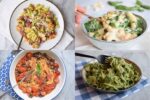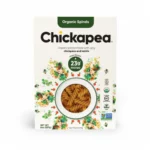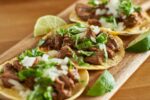Pasta Salad Is Safety During Pregnancy
For pregnant women looking to satisfy cravings for fresh, chilled salads without compromising on nutrition or safety, homemade pasta salads crafted with care offer a wholesome option in moderation. When prepared using nutritious ingredients like gluten-free pasta, antioxidant-rich vegetables and high-quality proteins in minimally processed forms, pasta salads supply balanced amounts of carbs, fiber, protein, vitamins and minerals to support a baby’s growth and development. However, potential risks from bacteria, undercooked meats, harmful chemicals and foodborne illnesses make careful preparation and prompt refrigeration essential for expectant mothers. By following basic food safety guidelines and choosing the freshest ingredients, homemade pasta salads crafted with care provide nourishing yet cautious satisfaction for pregnancy cravings.
Key details to keep in mind include using whole-grain or gluten-free pasta options high in folate and nutrients; thoroughly washing all vegetables to remove dirt and bacteria; fully cooking meats and eggs to kill harmful pathogens; limiting or omitting vulnerable ingredients like deli meats, soft cheeses and raw sprouts; restricting sodium from dressings; assembling the salad just before eating or refrigerating promptly; and discarding leftovers within 3 to 4 days. When prepared properly and consumed in moderation, homemade pasta salads offer nourishing yet low-risk refresher during the hot summer months of pregnancy.
Safe Ingredients
Certain pasta salad components pose minimal risk and even provide key nutrients to support a growing baby when properly prepared:
- Whole-grain or gluten-free pasta – Pasta noodles made from whole grains like brown rice, quinoa or corn provide fiber and important nutrients like folate, iron and B vitamins that aid in fetal development. Opt for thicker widths that remain satisfying yet won’t leave you hungry between meals.
- Veggies like carrots, spinach and peppers – Colorful vegetables supply carotenoids like lutein and zeaxanthin that benefit the eyes as well as immune-boosting vitamins and minerals. However, thoroughly wash cut vegetables to remove any dirt or bacteria that could cause illness.
- Boiled eggs – Hard-boiled eggs provide a good source of lean protein, vitamins and minerals like choline that supports fetal brain and memory development. Ensure yolks are firm and uniformly colored when cut into wedges to confirm thorough cooking that kills salmonella bacteria.
- Tuna or chicken – Small amounts of cooked tuna or shredded, leftover chicken breast offer a moderate source of easily digestible protein. However, limit canned tuna to no more than two 6-ounce cans per week to avoid too much mercury exposure. Fully cook chicken to an internal temperature of 165°F to kill bacteria.
- Olive oil – Drizzling a tablespoon or two of extra-virgin olive oil over salad ingredients provides heart-healthy monounsaturated fats shown to benefit fetal brain development. Monounsaturated fats also help the body absorb antioxidants from vegetables.
- Vinegar- In moderation, vinegars like red wine and balsamic can aid digestion and boost salad’s nutrient absorption. However, avoid creamy dressings high in sodium, which can cause water retention and high blood pressure in pregnant women. Instead, make your own light vinaigrette.
In summary, while certain ingredients in pasta salad present potential risks, choosing those packaged in minimally processed forms and cooking or preparing them properly provides nourishment to support the growth and development of a baby when consumed in moderation.
Food Safety Tips
Several precautions minimize the risks of foodborne illness from homemade pasta salad for expectant mothers:
- Wash hands thoroughly for 20 seconds or more before preparing or eating any food. Pregnant women have weaker immune systems, so handwashing reduces the chance of gastrointestinal infections from bacteria like listeria that can be especially dangerous during pregnancy.
- Scrub all vegetables under running water, including those with skins or rinds that will be eaten. Rub firm produce with a clean vegetable brush and soak leafy greens in a bowl of water to remove any dirt or debris where bacteria can hide. Even thoroughly washed produce should be peeled when possible.
- Marinate raw meats in the refrigerator, never on the kitchen counter at room temperature. Bacteria on meat and poultry multiply quickly at temperatures between 40°F and 140°F, so keeping ingredients chilled in the fridge until ready to add to salad minimizes the chance of contamination.
- Ensure raw and hard-boiled eggs are cooked thoroughly enough to kill any salmonella bacteria before using in pasta salad. For hard-boiled eggs, confirm yolks are uniformly firm with no loose, runny parts when cut into. For tuna or chicken, use a meat thermometer to ensure internal temperatures reach 165°F. Even then, do not leave protein ingredients at room temperature for more than 2 hours.
- Assemble the pasta salad just before serving or refrigerate within 2 hours. Limit time that perishable, protein-rich ingredients spend at temperatures between 40°F and 140°F, which is the bacteria “danger zone.” Promptly chilling finished pasta salad halts the growth and reproduction of any surviving bacteria.
- Discard any leftovers after 3 to 4 days. Because pasta salad contains moisture and a variety of perishable ingredients, bacteria continues to grow rapidly unless promptly refrigerated and discarded within the recommended time frame for pregnant women.
Health Benefits
When prepared carefully using nutritious ingredients, pasta salad supplies several benefits that support the health of both mother and baby during pregnancy:
- Fiber – Pasta made from whole grains like brown rice, quinoa and bean varieties contains 2 to 4 times more fiber than traditional white pasta. Dietary fiber helps regulate blood sugar levels, aids digestion and supports the development of a fetus’s intestinal system and immunity. Aim for around 28 grams of fiber per day during pregnancy.
- Protein- Boiled eggs, lean meats and legumes provide balanced protein containing amino acids that act as building blocks for a growing fetus, supporting cell growth, repair and hormone function. Opt for lean sources to minimize saturated fat intake. Good targets are 75 to 100 grams of protein per day during pregnancy.
- Folate – Found in foods like leafy greens, eggs and whole grain pasta, folate helps reduce the risk of neural tube defects like spina bifida in newborns. Aim for 600 micrograms of folate daily during early pregnancy from varied sources. The fetus uses stores of this B vitamin until the placenta develops at 12 weeks.
- Antioxidants – Vegetables like bell peppers, spinach and tomatoes supply carotenoids and vitamins C and E that counteract free radical damage and boost immunity. Antioxidants are also protective against health issues like preeclampsia and preterm birth. Eat a wide variety of antioxidant-rich fruits and vegetables daily during pregnancy.
- Hydration – The high water content of pasta salad vegetables supplies needed fluids during pregnancy to prevent complications like urinary tract infections and potentially dangerous preeclampsia. Drink 8 to 10 glasses of water per day to support amniotic fluid volume and allow nutrients to be properly absorbed.
- Variety – By combining multiple nutrients found in pasta, vegetables, eggs and protein sources, pasta salad provides balanced supplemental nutrition proportional to increased needs during pregnancy. It can help satisfy cravings while aligning with recommendations for regular, varied meals that include all major food groups.
In summary, when prepared carefully at home using nutritious ingredients, pasta salad offers several benefits that satisfy cravings while supporting the health of both mother and growing baby during the critical stages of pregnancy.
Recommendations
To safely reap the health benefits of pasta salad while pregnant, follow these recommendations:
- Limit high-mercury fish like canned tuna – Pregnant women are advised to consume no more than two 6-ounce cans of light tuna per week due to mercury’s impact on a developing fetus’s brain and nervous system. Opt instead for salmon or other non-predatory fish when possible.
- Go easy on higher-fat proteins like hard-boiled eggs and avocado – While sources of healthy fats, higher fat intake during pregnancy can lead to excessive weight gain. Limit to 1-2 eggs and 1/2 of a medium avocado per week in pasta salad to control calories.
- Add protein-rich beans or legumes in place of meat – Legumes like chickpeas, kidney beans and lentils provide more fiber and nutrients per calorie, helping you feel fuller on less. They also minimize saturated fat intake, keeping your heart healthy for both you and baby.
- Keep dressing light – Use a ratio of 3 parts oil to 1 part vinegar in a vinaigrette. For flavor, add red wine vinegar, lemon juice, Dijon mustard and fresh herbs. Limit creamy, high-sodium dressings.
- Skip potentially harmful ingredients – Avoid deli meats due to possible listeria contamination, raw sprouts for E. coli risk, unpasteurized dairy and soft cheeses for listeria and salmonella. More thoroughly cooked ingredients minimize bacterial concerns.
In summary, recommendations for preparing pasta salad during pregnancy focus on limiting higher-risk components, exchanging more nutritious alternatives for protein and fat, minimizing heavily processed items and focusing on light, fresh preparations higher in nutrients and lower in potential health threats – all changes that empower expectant mothers to indulge in pasta salad’s appeal with more peace of mind.
When prepared at home using nutritious, minimally processed ingredients and following food safety guidelines for proper refrigeration and handling, pasta salad provides nourishing carbs, protein, vitamins, minerals and fluids to support both mother and growing baby during pregnancy. However, risks from bacteria, undercooking and contaminated ingredients make careful preparation essential for expectant mothers. By choosing components conscientiously and assembling salad just before eating, homemade pasta salads can satisfy pregnancy cravings while supplying balanced supplemental nutrition.
FAQs
1. Can pregnant women eat gazpacho, a cold tomato soup? What precautions should be taken?
Yes, if freshly made at home using thoroughly washed, cooked or Jarred ingredients. Thoroughly wash hands, utensils and surfaces. Refrigerate immediately and discard leftovers within 2 days.
2. Are cold salads with quinoa and veggies also safe to consume during pregnancy?
Yes, as long as ingredients like raw onions, mushrooms and sprouts are avoided. Quinoa and vegetables supply fiber, nutrients and antioxidants beneficial for pregnancy. Make dressing with olive oil and lemon juice.
3. Besides pasta salad, what other types of chilled salads are suitable for expectant mothers?
Grain-based salads with bulgur and rice, bean salads like edamame, and lentil or chickpea salads provide fiber, protein and iron. Green salads with vegetables and olive oil-based dressing also pose minimal risk if made at home.
4. Besides possible food poisoning, are there any other health risks from eating pasta salad during pregnancy?
Excess salt from store-bought dressings can cause high blood pressure, and high-fat ingredients like eggs, creamy dressings and olives provide unnecessary calories. Limit portion sizes to 1-2 cups and control mayo or cream-based additions.
5. Besides pasta, are there any other forms of grain-based chilled salads acceptable for pregnant women?
Yes! Salads with quinoa, barley, bulgur, rice, buckwheat, millet, or corn are also nourishing options for expectant mothers when made with light dressings and plenty of fresh vegetables.




